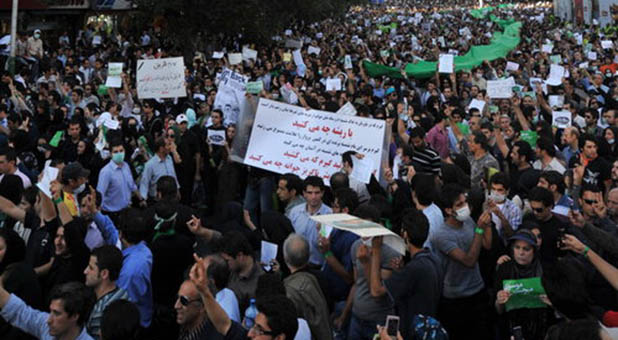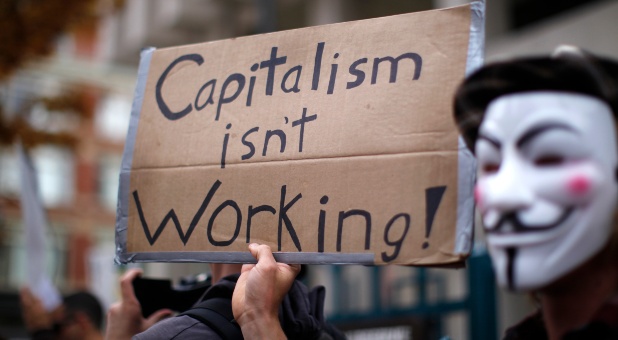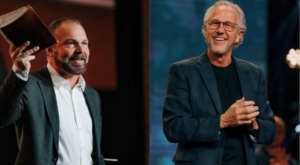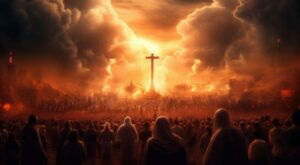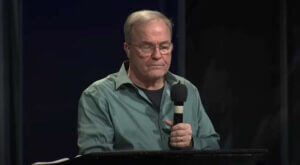Iran is scheduled to hold its next presidential election May 19 with incumbent President Hassan Rouhani seeking a second four-year term.
Though he handily won the presidency in a landslide in 2013 and forged Iran’s nuclear deal, Rouhani faces stiff challenge from several other candidates this time around, including hardliner Ebrahim Raisi, a judge and cleric who is close to Iran’s Supreme Leader Ayatollah Ali Khamenei and rumored to be his successor.
Rouhani told reporters, as he registered for the election last week, “Once again, I am here for Iran, for Islam, for freedom and for more stability in this country.”
While his main challenger Raisi enjoys support within Iran’s theocratic and hardline establishment, he lacks the popular political support that Rouhani and his technocrat-reformist coalition have built over the last four years, Behnam Ben Taleblu, senior Iran analyst for the Foundation for Defense of Democracies (FDD), told JNS.org.
“The regime does desire an increase in Raisi’s public stature and thus may be implicitly supportive of his candidacy, but if Raisi loses the presidency, then his chances of being supreme leader would face a commensurate decrease,” Ben Taleblu said.
“Should the regime deviate from the previously established trend of furnishing almost all incumbents with a second term, it would likely have to decidedly rig the election in Raisi’s favor,” he added.
Nevertheless, many Iranians have become dismayed with Rouhani, who had promised to end Iran’s isolation and create a freer society, as the country’s economy failed to grow despite the lifting of economic sanctions in the aftermath of the nuclear deal he brokered with world powers in 2015.
“Rouhani artificially elevated the hopes of the Iranian population when he campaigned for the presidency back in 2013 and has earned the ire of some the reformists who supported him since he has not pushed back considerably against the hardest of the hardliners in Iran,” Ben Taleblu said.
Rouhani may also face a challenge from outspoken former Iranian President Mahmoud Ahmadinejad, a noted Holocaust denier who has called for Israel to be wiped off the map. Last week, Ahmadinejad announced that he filed to run again for the office, despite calls by Khamenei not to do so.
“If I had to make an assessment now, I’d say his registration is probably a calibrated gamble,” Ben Taleblu said. “The former Holocaust denier-in-chief may be seeking leverage against the hard-line political establishment by making a tacit bargain that would ensure that his former special adviser, Hamid Baghaie, remains in the race. It remains to be seen if Iran’s hardliners will even accept such a proposition,” he added.
Fake Elections?
For many casual observers, Iran’s upcoming elections may seem consequential. But there are major obvious differences between that country’s system of government and that of the Constitutional-based United States or other Western democracies. In the West, a president or prime minister has a strong hand in guiding foreign policy and military affairs, while in Iran the president is largely powerless in these areas, explained Ben Taleblu.
“Iran’s president can influence domestic politics and legislation with relative ease, but is severely limited with respect to the direct impact he can have on the country’s foreign and security policies,” he said.
Therefore, most strategic areas of concern to outsiders are, instead, ruled by Iran’s supreme leader, the Revolutionary Guards Corp or its intelligence ministry, which form the core of Iran’s theocratic and authoritarian government.
“The president can nonetheless influence those portfolios through the tone and tenor of his speeches and the nature of his cabinet appointments,” Ben Taleblu said. “Despite the power of the president to influence tactics but not strategy, elections in Iran remain famously engineered.”
Despite limited presidential powers and a largely manufactured process, the upcoming elections still provide considerable insight into the future direction of Iran.
“While I don’t find it particularly useful to partake in the ‘do Iran’s elections matter’ debate, the 2017 presidential election will likely be critical for the regime in Tehran,” Ben Taleblu explained, adding that “hardline elites want to signal to the international community that they are legitimate, and thus want a large turnout.”
But high voter turnout can also backfire against the hardline regime as was seen with the 2009 presidential elections, which led to major protests against the disputed victory of former President Ahmadinejad.
“Secure with a nuclear deal and flush with sanctions relief, Iran’s hardline politicians are entrenching themselves while the regime as a whole is increasing the lethality of its non-nuclear threats and deepening its regional involvement,” Ben Taleblu said.
Aging Ayatollah
Despite the country’s limits on power, Iran’s next president could play an outsized role in the selection of the next supreme leader.
The current Supreme Leader Ayatollah Khamenei, aged 77, took power in 1989 after the death of Khomeini, who led Iran’s Islamic Revolution a decade earlier. It has been rumored for years that Khamenei has been battling health issues, and there’s uncertainty as to who will succeed him.
“The hardline elite may calculate that should the supreme leader pass in the next four years, the country will need a sufficiently revolutionary leader who is firmly committed to the regime’s political, military and ideological orientation,” Ben Taleblu said, adding that any president who can “extol those revolutionary virtues will be a key force in projecting stability during a time of potential crisis.”
This article was originally published at JNS.org. Used with permission.
See an error in this article?
To contact us or to submit an article


